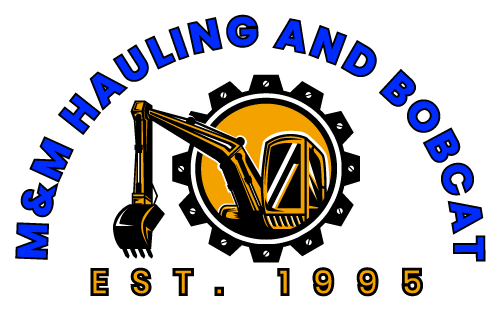Many industries, including construction, landscaping, logistics, demolition, and trash removal, can benefit significantly from hauling.
Efficient hauling ensures that goods are carried swiftly and safely, leading to lower costs and more output.
Whether you are a contractor, company owner, or individual needing to relocate products, learning the principles of effective transportation may make a big impact.
Businesses that focus on these components can expedite their transportation procedures, minimize delivery schedules, and ultimately boost customer satisfaction while keeping sustainable practices in their operations. This article provides a comprehensive guide on effective hauling.

Hauling Truck Rental in CA
Understand Your Needs
Understanding your individual requirements for effective hauling is critical to improving the entire process. Whether you are carrying building materials, furniture, or garbage, knowing what you need helps you choose the correct truck and equipment. This guarantees that the appropriate capacity, weight limitations, and dimensions are satisfied, therefore preventing any delays or damage. Furthermore, knowing your demands helps with budgeting, allowing for realistic cost estimates and minimizing unforeseen spending. It also allows for better contact with haulage service providers, ensuring they understand your needs and can adjust their services accordingly. Finally, a detailed grasp of your hauling requirements results in a smoother, more effective operation, saving time and money while reducing stress.
Choose the Right Equipment
Appropriate equipment increases productivity by lowering the time and effort necessary for transportation jobs. For example, customized trucks or gear designed for certain loads can considerably simplify operations while reducing wear and tear. Furthermore, utilizing the proper tools helps to guarantee job site safety, since load-specific equipment can prevent accidents and injuries. Besides, it can result in long-term cost benefits since efficient machinery often consumes less fuel and requires less maintenance. Picking the appropriate equipment demonstrates a dedication to quality and professionalism, which fosters confidence and satisfaction among customers and stakeholders. Overall, having the right equipment is critical for increasing productivity, safety, and profitability in hauling operations.
Plan Your Route
It saves fuel usage and travel time, decreasing operational costs while boosting environmental sustainability. Haulers may avoid delays and achieve on-time deliveries by keeping track of traffic patterns, conditions, and potential impediments. Furthermore, a well-planned route increases safety by reducing the possibility of accidents caused by unanticipated impediments, such as sharp bends or low bridges. Finding out the ideal approach guarantees improved weight distribution and management, perhaps preventing damage to items. Comprehensive route planning not only increases overall efficiency but also encourages satisfaction of customers via consistent and timely service, making it a must-have practice for every hauling company.
Practice Safety
It is essential to prioritize safety when carrying efficiently in order to avoid mishaps, injuries, and expensive damage to equipment and cargo. Drivers minimize the possibility of movements during transit that might result in road dangers by following safety procedures, which guarantee that goods are securely fastened. By reducing the possibility of accidents or debris spilling onto the road, safe carrying also contributes to the safety of other drivers. Adhering to safety protocols also improves operational effectiveness by mitigating delays resulting from mishaps or malfunctions. In the end, putting safety first promotes a culture of accountability and professionalism, guaranteeing the efficient and safe transportation of commodities.
Implement Technology
Sophisticated system makes it possible to track cargo and transportation vehicles in real time as well as the fuel consumption. Fleet or GPS management systems deliver vital data on the performance of vehicles, enabling operators to plan and schedule maintenance and repairs with knowledge. Additionally, scheduling and dispatching automation lowers human error while ensuring timely deliveries. Telematics technologies provide exact monitoring of cargo conditions, assuring safety and regulatory compliance. Technology improves operational transparency and responsiveness by facilitating communication among drivers, dispatchers, and customers. Overall, using these technology improvements improves operational efficiency, increases client happiness, and lowers operating costs in the haulage business.
Manage Your Costs
Companies that diligently analyze their labor, fuel, and equipment maintenance expenditures can find areas for possible savings and improve their procedures. For example, knowing the costs of several routes helps with better route planning, which reduces fuel consumption and driving time. Moreover, proficient cost management guarantees the prudent allocation of resources, enabling the application of the most effective machinery for certain assignments. This shortens downtime and lengthens the equipment’s life with regular maintenance.
Mastering effective transportation is crucial for saving time and money. Understanding best practices, selecting the correct equipment, and planning intelligently will help you increase production and lower expenses. Adopting these concepts not only simplifies your hauling operations, but also helps to promote sustainable practices, resulting in a more effective approach to carrying commodities in any situation.




